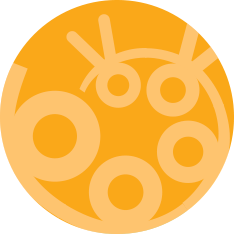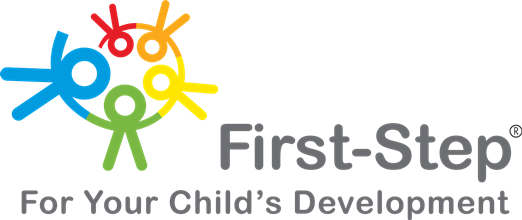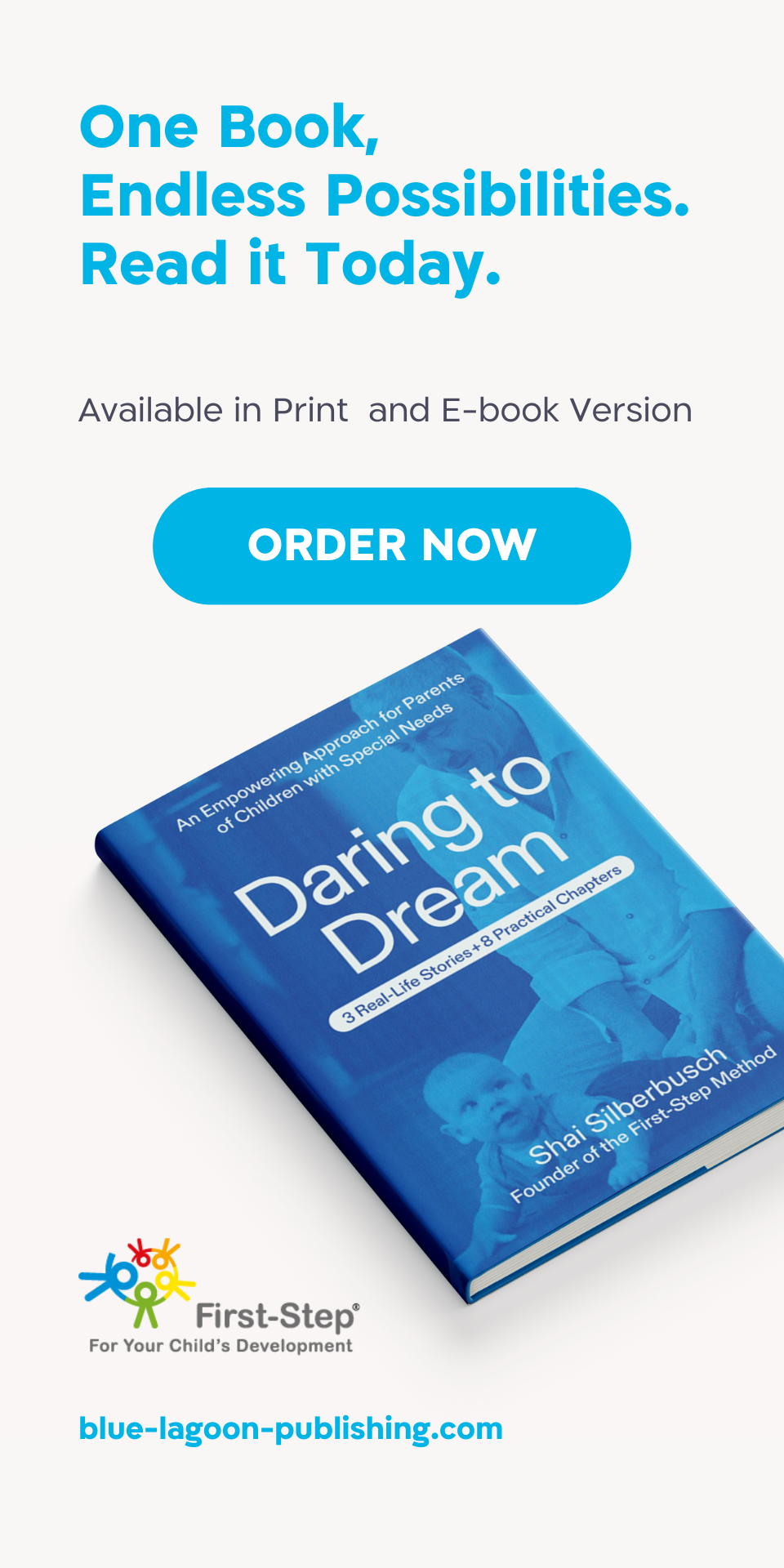
3-6 Months
First Step Workshops – From 3 to 6 months
This workshop targets a crucial stage in baby’s development: it’s a stage where babies have a narrow window of opportunity to master topics that are critical for the rest of their life. We deal with all the relevant topics, and parents are fully involved in the process
Balance reflex
At three months, babies should transition from the primitive reflex system to another, less-known system that’s related to balance. It allows baby to align herself with the “midline” – which is the basis for the following stages – rolling over, crawling, and walking.
The balance-related reflex system should develop in every baby, according to the inbuilt genetic code. But like any developmental system, it needs the right environmental stimulus that generates learning. In this case, the baby’s movement within space must be the correct one.
In the distant past, that was the natural movement of mothers (who carried their babies everywhere), but today it’s no longer the natural movement. It happens rarely – sometimes not at all.
The exercises we demonstrate in the workshop actively stimulate balance so that the reflexes respond. In the process, the exercises are very enjoyable for baby and her parents- who learn to trust their ability to help their child through the right movement.
Improving “tummy time” and head-raising
“Tummy-time” is another important developmental stage for babies at this age. At the well-baby clinic, mothers of three-month old babies are sometimes “rapped on the knuckles” because their baby rarely lies on his stomach. From one perspective, it’s a justified reprimand. Lying on the tummy at this age is critical for continuing development. If babies don’t get enough tummy-time, their development will be delayed at all following stages, and may even need professional/remedial intervention!
Of course, anxiety over sudden infant death syndrome (SIDS) means that most babies are placed on the back, almost throughout the day. As a result they develop a related physical pattern– rigidity, an over-erect chest– and a physical condition making it painful for them to lie on their tummy.
At First Step, we take a different approach. Our starting point is that baby doesn’t have to suffer and cry when we change his habit of lying on the back to lying comfortably – and correctly in development terms – on the tummy. A series of exercises we’ve developed works with difficulties created after lying on the back for too long. They help baby learn to enjoy tummy-time, to raise his head gradually and naturally. Baby doesn’t “have to” cry during the transition.
Rolling over
Parents can be sure that their baby’s developmental turning-points will happen “inevitably” or “naturally”. But reality is different: every developmental turning-point has important conditions that baby must comply with before progressing to the next stage. Your baby doesn’t wake up one day, check what they’re saying at the well-baby clinic, and see it’s rolling-over time…like any other stage, rolling over depends not on time, but on the infrastructure that baby has already acquired.
Another advantage of attending a workshop is that we constantly check the elements of movement acquired – so the baby can safely progress another stage. While working with the baby, she’s given specific stimuli encouraging her to acquire elements of the movement, so rolling over happens gently and correctly.
All First Step exercises can be practiced at home, so you play a truly supportive role in your child’s development.
Remember that parents’ behavior influences babies’ development!
Getting ready for stomach slithering
Stomach slithering is the next stage in baby’s development. It usually starts towards the end of the workshop, or shortly later. Slithering on the stomach is little-known because most babies don’t use it – despite its importance for them. Stomach slithering precedes crawling on hands and knees, and prepares the foundation for it – as well as for standing and walking.
The developmental infrastructure of stomach slithering starts long before baby starts moving – it’s connected to how the baby lies, stretches out her arms, brings objects to her mouth, and rolls over. At the workshop, you’ll learn the conditions for encouraging stomach slithering, and exercises that will help baby mature and take another “step up the ladder” when it’s time.
Babies – communicative creatures
At around three months, babies stop being “womb creatures” closed-in on themselves. They’re looking more and more at the outside world, and communicating with it. Research has found that a baby’s communicative encounters at this stage are significant for all forms of communication that s/he’ll use throughout life: acquiring speech, expressive skills, and connecting with people.
But how can we communicate with the baby, when we don’t speak baby’s language? Babies don’t understand adult language, they have a different one- the language of touch, mimicry, movement, gestures, and feelings.
At First Step, participants learn how to communicate properly with baby without teaching it, or approaching baby in a technical way. Grownups can learn baby language although it can feel unnatural. Some mothers admit they’re shy about using “funny voices”, but in the workshop they learn about their significant role in communicating correctly with baby. They understand its positive impact for baby’s future. Parents learn how to use the power of voice, intonation and mimicry to communicate with the baby in a language s/he understands. Correct communication is linked to many cycles of development: in fact, motoric, sensory, cognitive and linguistic development are all related to communicating properly with baby.
Remember that many children have communication problems that started “in the very first months of life”
Other developmental milestones
Follow-up is an important aspect of the workshop, and we suggest exercises for other significant developmental milestones – reaching out to and grasping an object, eye-hand coordination, and tracking movement in space. Problems with any of these milestones can negatively affect continuing development, and so identifying them during that window of opportunity is critical for every baby.
As in all workshops, this workshop allows for a relaxed encounter with parents and babies at the same developmental stage. There’s an informal, fun atmosphere, with a baby-friendly setting featuring stimuli and challenges for development that match their specific needs. Plus professional facilitation allowing for assessment and follow-up for your baby.
Some of the topics discussed at the workshop are:
- Stimulating the reflex and balance systems
- Learning to roll over
- Head-raising
- Basics of grasping
- More techniques for coping with and soothing a crying baby

